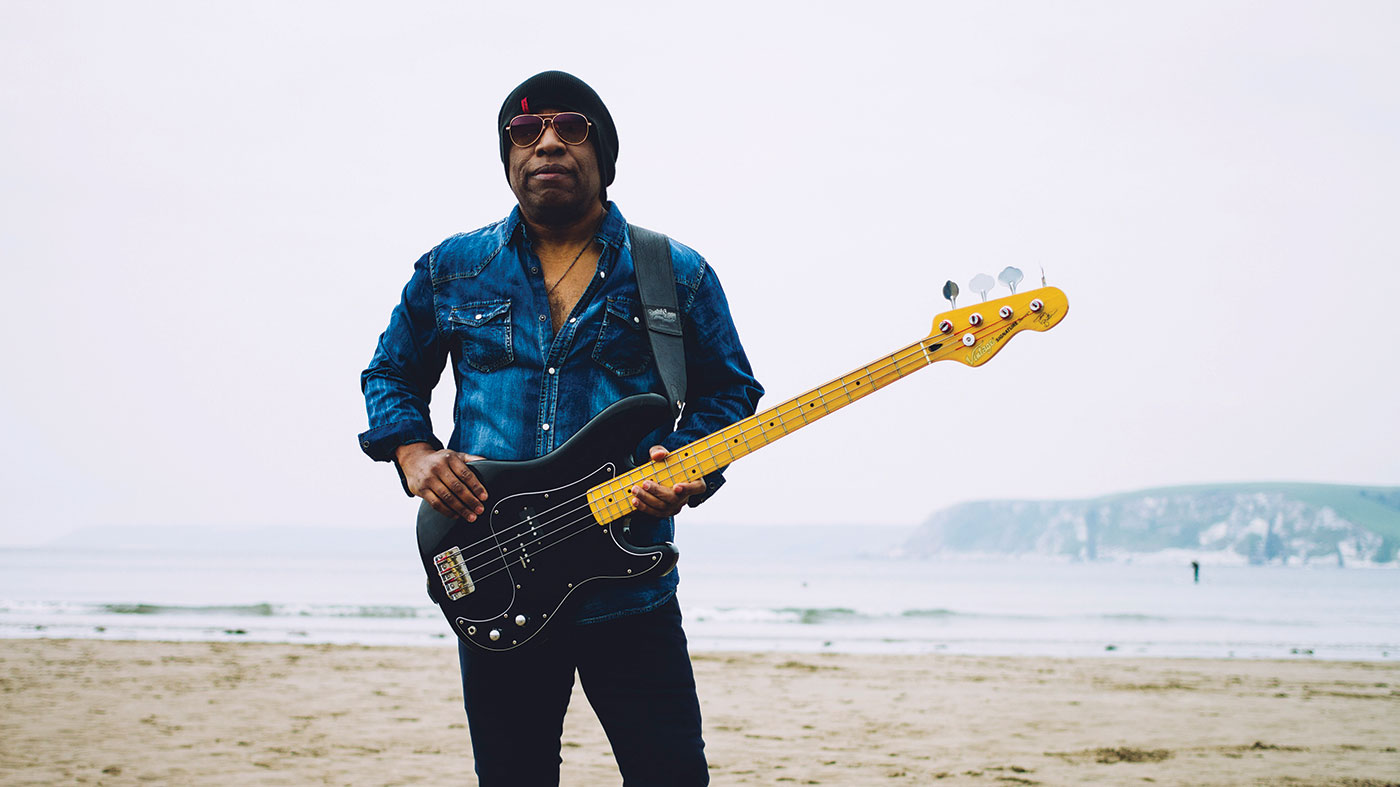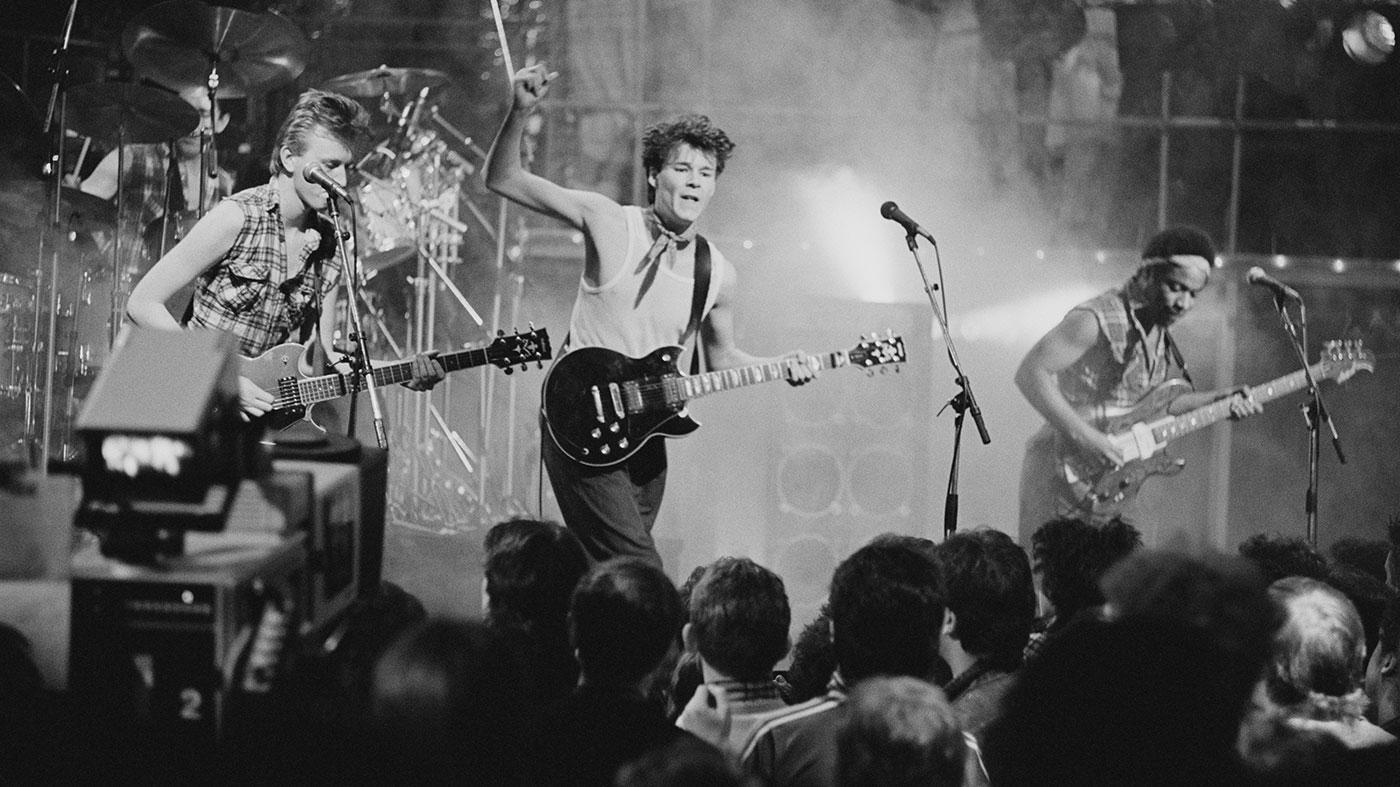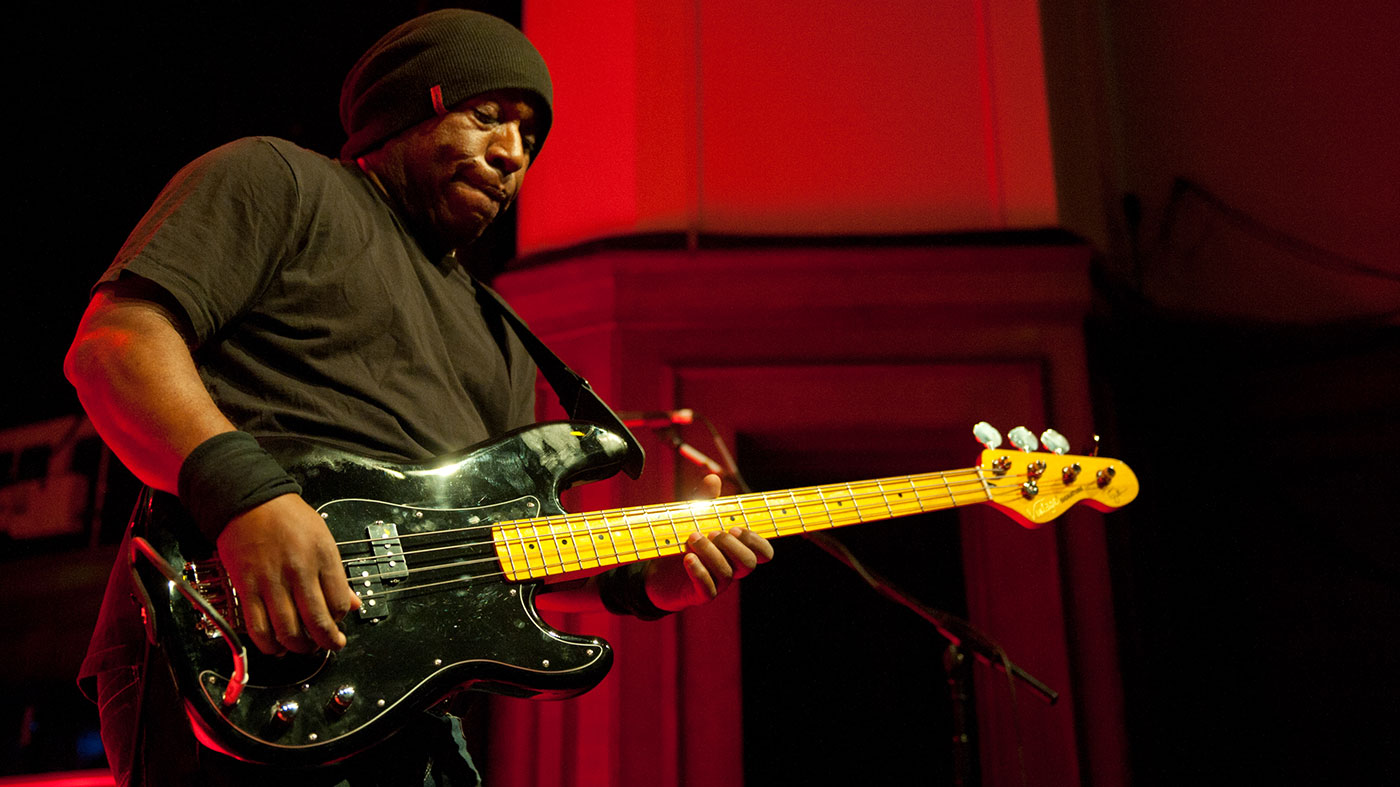Tony Butler: “Being a bass player has been the greatest asset of my life”
The Big Country bassist on turning songwriter and some famous four-stringer friends

With a new solo album, My Time, sometime Big Country bassist Tony Butler is flying high, musically and personally.
'80s kids like me will always remember the huge sound of Big Country, a mostly Scottish band whose epic, Celtic sound was often mocked in the cynical music press of their day, but who had the last laugh by selling out massive stadiums worldwide.
The quartet’s classic line-up of Stuart Adamson (vocals, guitar), Bruce Watson (guitar), Tony Butler (bass) and Mark Brzezicki (drums) made four instruments sound like an army on the march, attracting devotees here and in the USA and keeping pace with contemporaries such as U2 in the early-'80s.
A Big Country gig was a serious spectacle. Times and fashions changed, and the band lost its way to a degree in the following decade, coming to an effective halt with Adamson’s alcoholism-induced suicide in 2001.
Short-term reboots have come and gone since then, but the band’s glory days are definitely behind them - which makes it all the more gratifying that Butler’s new album My Time is packed full of great songs. We met the man for a chat about his new life as a solo musician.
How did the solo album come about, Tony?
To get Mark Brzecki in the studio was just the best feeling
“I’ve had some pretty lovely people to work with over the years, with my colleagues in Big Country, and my mentor from back in the early days of my career, Pete Townshend. I learned a lot from them and I value every moment I shared with these people, but back in 2000 when Stuart passed away, I thought ‘I don’t want any more of this’. I was being encouraged to keep the band going, be a supergroup and get some big names in, but I couldn’t really be arsed with that. I dipped my toe into the water a couple of times, but when I left the reconstituted Big Country in 2012, I thought, ‘Let’s do something else’.”
Get the MusicRadar Newsletter
Want all the hottest music and gear news, reviews, deals, features and more, direct to your inbox? Sign up here.
Did the album come together quickly?
“I spent two or three years just putting together a bunch of songs. Because of the job I had working at a college we had a recording studio, and I took advantage that to do the drums. I’ve done everything else at home with my computer setup. I went in direct, or I used my Ashdown ABM head; they’ve been brilliant for me.”
Big Country fans will be pleased to see that you’ve got Mark Brzecki playing drums.
“Out of everything that’s gone on with Big Country, I have missed playing with him most, so to get him in the studio was just the best feeling. I also needed to have the support of [manager] Ian Grant, who’s been a huge part of my life. If he didn’t like it, I wouldn’t have done it. I’m really proud of the album; putting myself back out there and being a frontman is fantastic.”

Peace and Precisions
Is your Fender Precision an older model?
“I think it’s from 1984 or ’85. We were setting off to start a European tour at the time, and the bass I had went wrong, so we picked up this P-Bass and slapped a chrome front on it. I’ve always had a lot of respect for Phil Lynott, so that was me doffing my cap to him.”
What other basses have you played?
I was in LA in 1988, when we were recording Peace In Our Time, and I went to Norm’s Rare Guitars and picked up a few Precisions
“When Big Country started I had an Aria endorsement, and I had a Wal for a while but I didn’t get on with that. I also got an Alembic, but it just wasn’t a rock bass. I was in LA in 1988, when we were recording Peace In Our Time, and I went to Norm’s Rare Guitars and picked up a few Precisions. They were all fantastic. You can’t go wrong with a P-Bass. I also picked up a Washburn, which was a fantastic-looking bass, with really wonderful bubinga wood.”
You also have a signature Vintage bass.
“I have, and I love it. The whole idea behind my signature bass was to have a high-quality instrument that you could get for £300. I wanted to put my name to something that’s affordable. I was teaching at the time, and for some years running I gave away one of my basses as a prize for my students’ achievements. The bass is suited to the learner, but it’s still quality. JHS have been fantastic. I originally wanted them not to put a tone control on it, because on my P-Bass I’ve isolated the tone control. But they said they’d prefer to keep the tone, which was fine.”
We’re always looking for a great bass that doesn’t break the bank.
“Well, I think that my signature bass does that. I want people to know that they can get a decent instrument for decent money.”

Root notes
How did you first get into bass?
“My cousin knew I had an interest in basses, and he bought one a friend of his made. The body was made of papier-mâché, and it had this very big square pickup. I started learning on that; it was great to stand in front of a mirror and look like I had a real bass, but one day I spilled some coffee over it and obviously the papier-mâché started to rot, so I had to find myself a real bass.”
What was that first proper bass?
Chris Squire and Mike Rutherford. Those two guys were hugely influential on my playing
“My mum took me to the bank to ask for a £200 loan, so I could buy a Rickenbacker copy - I don’t remember the model. I remember talking to the bank manager, and my mum asked ‘What about a real one?’ I said that I thought a real one would cost about £440, and she turned round to the manager and said, ‘Give him £440!’ That’s how I got my Rickenbacker 4001S, which is now a family heirloom. My mum was so supportive of my musical career, although when Big Country broke, she kept on asking me if I was going to get a real job! Bless her, she passed away in 2000.”
Which bass players influenced you?
“My first influence wasn’t a bass player, it was Jimi Hendrix. I played bass because I didn’t think I would be worthy if I tried to be a guitarist. But my first bass influences were Chris Squire, hence the Rickenbacker, and Mike Rutherford. Those two guys were hugely influential on my playing.”
Did you ever meet them?
“In the early-'90s, my ex-wife was working on a newspaper, the Acton Gazette, and she wangled me an interview with Chris Squire. At one stage Big Country had Yes’s front-of-house mixer, a guy called Nigel Luby. I’d been able to get some information about Chris’s rig from Nigel, which enabled me to talk to him with a bit of knowledge.
“Around the same time, Big Country did a gig in Belgium with Mike & The Mechanics, so I got to meet Mike Rutherford. I told Mike that back in the late 70s, I was working for Pete Townshend, running his synthesiser hire company at Shepperton Studios. Genesis happened to be there, and I went in there and knelt in front of his rig like an altar! He loved it when I told him that story.”

Who knows
If you knew Pete Townshend, presumably you also knew John Entwistle?
“John used to live not too far from Ealing Common, where Simon Townshend lived. We went round to his house one day; it was a complete shrine to bass guitars. He was really nice - he just took them off the wall and we’d have a play. He took us into a room where he had some amps set up. He played and I nearly shat my pants because of the rumble. I can only imagine the sort of volume he’d normally use.”
Did you enjoy being famous?
John Entwistle played and I nearly shat my pants because of the rumble
“How can I put this? Myself, Bruce, Stuart and Mark had no ideas of what that kind of fame and fortune could bring to you, because we didn’t care. We enjoyed the seriousness of the music, the happiness of playing, and the joy that we had with people. The fact that we weren’t hip didn’t bother me at the time, but it did latterly, because I don’t think the band was treated with respect. To me, Mark Brzezicki is the best drummer this country has ever produced, but he’s more respected in America than he is here.”
Who were your contemporaries, as you see it?
“I’ve had it on good authority that there were four bands at the forefront of British rock at the time: Big Country, U2, Simple Minds, and the Alarm. All these bands were level until U2 went mega after [1984 live documentary] Live At Red Rocks. Simple Minds had a hit in America with Don’t You Forget About Me, and then they started taking off too, which left us and the Alarm behind a bit. Once U2 went interstellar they left everybody behind.”
All the best with the new album, Tony.
“I’ll just say this before I leave: being a bass player has been the greatest asset of my life, but being a songwriter for this album, with songs that mean stuff to me, I’m in a new world. I hope that other people can relate to it as well.”
My Time is out now on Phoenix Rising Records.


“I’m beyond excited to introduce the next evolution of the MT15”: PRS announces refresh of tube amp lineup with the all-new Archon Classic and a high-gain power-up for the Mark Tremonti lunchbox head
“These guitars travel around the world and they need to be road ready”: Jackson gives Misha Mansoor’s Juggernaut a new lick of paint, an ebony fingerboard and upgrades to stainless steel frets in signature model refresh









